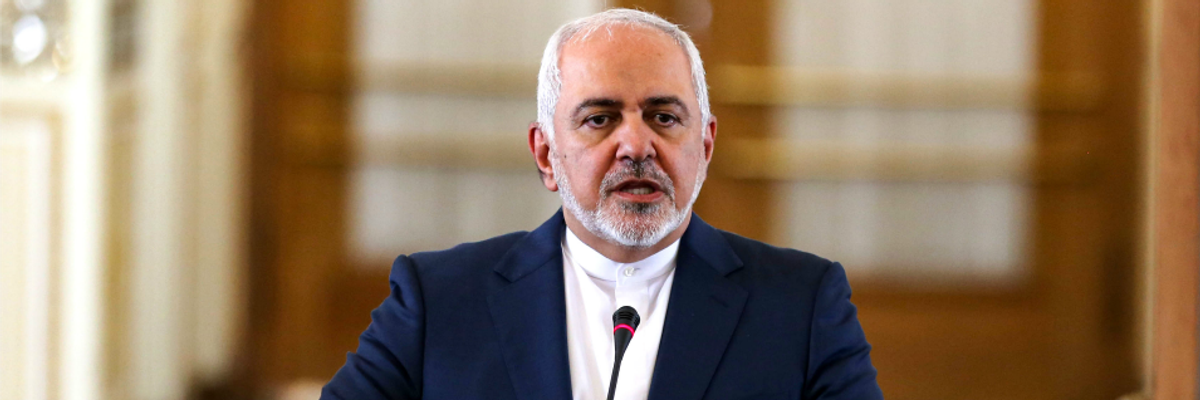Iranian Foreign Minister Javad Zarif said Monday that if President Donald Trump truly wants to engage in good-faith negotiations over Iran's ballistic missile program, his administration must stop selling tens of billions of dollars in weapons to Saudi Arabia, the United Arab Emirates, and other U.S. allies in the Middle East.
Zarif, who is in New York on United Nations business, told NBC's Lester Holt that the influx of American weapons is "making our region ready to explode."
"Let me ask you--who's bombing Yemen? I believe if you want to look at the right place for those who have malign activity in our region, the United States needs to look at its own allies, not at Iran."
--Javad Zarif, Iranian Foreign Minister
"If you want to discuss ballistic missiles, then we need to discuss the amount of weapons that are sold to our region," said Zarif. "Last year, Iran spent $16 billion altogether on its military. We have a 82 million population... The United Arab Emirates, with a million population, spent $22 billion. Saudi Arabia--with less than half of our population--spent $67 billion, most of them are American [arms]."
"So if they want to talk about our missiles," Zarif added, "they need first to stop selling all these weapons, including missiles, to our region."
Watch the full interview:
Zarif said Iran would be open to negotiating over its ballistic missile program and restarting talks with the U.S. on the nuclear agreement--which President Donald Trump violated last May--if the White House lifts economic sanctions, which are primarily harming ordinary Iranians.
"It is the United States that left the bargaining table, and they're always welcome to return," said Zarif, who described the Trump administration's sanctions as a form of warfare "whose main target is not military personnel, but civilians."
Khury Petersen-Smith, the Michael Ratner Middle East Fellow at the Institute for Policy Studies, echoed that point in Foreign Policy in Focus on Monday.
"The U.S. is brutalizing ordinary Iranians," wrote Petersen-Smith, "even as its actions and rhetoric are driving toward a more serious military confrontation."
Zarif's comments come just a week after Trump threatened to "substantially" intensify sanctions against Iran. As NPR reported last week, "Trump wants to force Iran to accept a tougher deal and include other requirements that restricts Iran's ballistic missile program and end its aid to its military proxies in other parts of the Mideast."
When Holt asked Zarif about Iranian "proxies" in the region, the foreign minister responded with a series of questions of his own.
"Let me ask you--who's bombing Yemen?" asked Zarif. "Why do you have chaos in Libya? Is Iran involved in Libya? Is Iran involved in Sudan? Is Iran involved in Algeria? Why do we have all this turmoil? I believe if you want to look at the right place for those who have malign activity in our region, the United States needs to look at its own allies, not at Iran."
Zarif's call for Trump to stop pouring weapons into the Middle East come as the U.S. president is attempting to bypass Congress to sell billions of dollars in American-made missiles and other weaponry to Saudi Arabia and the United Arab Emirates.
The House of Representatives is expected to vote this week on a series of measures that would block the Trump administration's arms sales. The Senate passed the measures in a bipartisan vote last month, as Common Dreams reported at the time.




